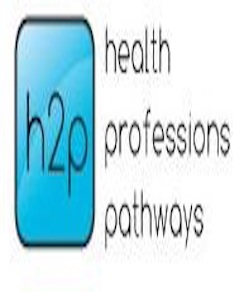Approximately 65 representatives from 21 community colleges and 14 affiliate organizations attended the Core Curriculum Institute, led by the Health Professions Pathways (H2P) Consortium. The H2P Consortium, a recipient of a Round One Trade Adjustment Assistance Community College and Career Training Grant (TAACCCT), is comprised of nine community colleges in five states and is led by Cincinnati State Technical and Community College. Two major strategies of this consortium are to help establish a “competency-based core curriculum” for health professions programs in community colleges and in doing so, “galvanize a national movement to improve health professions training.” In their effort to galvanize the national movement, each of the nine colleges in the consortium brought at least one representative from another college not a part of H2P to expand the network and increase the opportunities to scale the adoption of core curriculum for health professions education.
Held September 24, 2014, faculty, administrators, industry representatives, and leaders of health-related professional organizations shared models of health occupations core curriculum, previewed newly created open educational resources (OER) learning modules, and discussed national trends in credentialing. Of special interest to colleges just beginning the journey to establish a core curriculum, conference attendees brainstormed issues and problems and actively contributed to potential solutions to issues related to establishing a core curriculum.
As part of the third party evaluation team from the Office of Community College Research and Leadership (OCCRL) at the University of Illinois at Urbana-Champaign and as a former health occupations instructor at a community college, I was fortunate to have participated in this ground breaking event. The concept of offering a standard core curriculum is a potentially transformative innovation for community colleges that are tasked with finding new ways to recruit more diverse populations, helping them make better informed career decisions, retaining them to completion, and more. These issues are being addressed by some of the early adopters of core curriculum.
Transformative innovations face many hurdles, and core is no exception. The innovations this consortium is undertaking have the potential to transform healthcare education at a time when it is critical to better prepare diverse populations seeking credentials in the industry. Meeting attendees discussed the obstacles of gaining faculty buy-in, expanding outreach and recruitment efforts, adding competencies requested by employer partners, and staying within program credit hour limits, to name a few. To add to the complexity, the consortium in its efforts to scale this innovation is addressing the issues associated with creating a core curriculum that is consistent across colleges yet flexible enough to accommodate specific college and employer needs. Within the nine colleges in the H2P consortium there is variability in the numbers of courses that comprise the core curriculum and in the content, though all colleges have crosswalked their curriculum with the Department of Labor’s Allied Health Competency Model. As a leader of the core curriculum movement, Sondra Flemming of El Centro College in Dallas, Texas, advised the attendees, “If Core [curriculum] is based on competencies, eventually it will all look very similar.”
Has your college attempted to scale a transformative innovation? What barriers have you faced, and what successes would you like to share with our Transformative Change Initiative network? We invite your input.
Catherine Kirby is a research information specialist at the Office of Community College Research and Leadership (OCCRL), where she provides leadership in evaluation, research, and development projects related to the Department of Labor’s Trade Adjustment Assistance Community College Career Training (TAACCCT) grants and Perkin’s Programs of Study.
